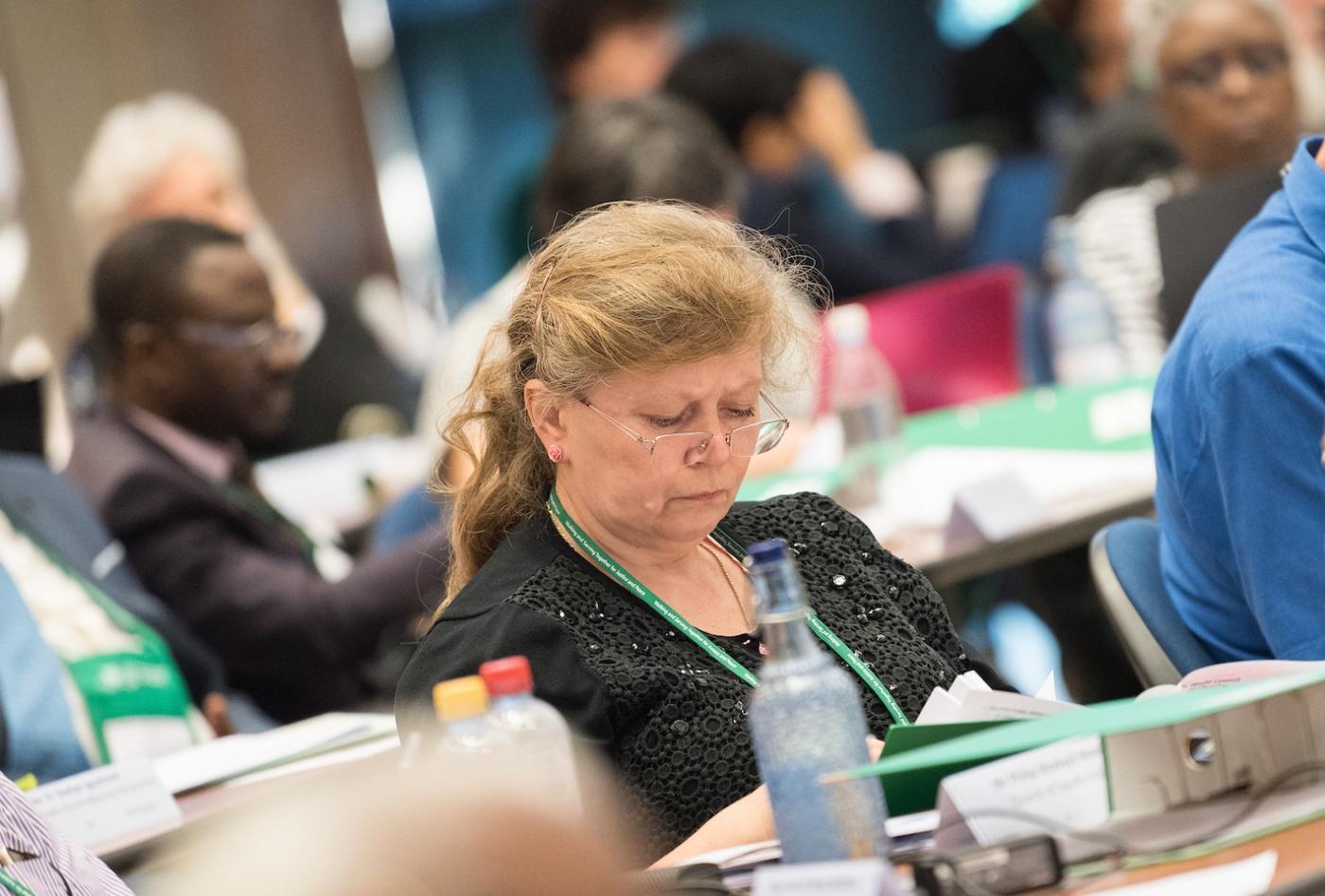The visit of the pope to the World Council of Churches (WCC) has special significance, given the current situation in the Middle East and North Africa, where Christians are suffering persecution, says a member of WCC’s senior governing body.
“In this special situation, the visit is a timely expression of the willingness of the Roman Catholic Church to work together with Protestant and Orthodox members of the ecumenical family,” says Margarita Nelyubova.
Nelyubova, a Russian Orthodox laywoman, hopes the visit of the Pope to participate in celebrations of WCC’s 70th anniversary will lead to closer cooperation among Christian churches in responding to urgent challenges, especially on what she calls “the burning issue of the Middle East.”
“The Middle East is a hotbed of problems right now, but there are signs that Christians are persecuted in other parts of the world, for example in some countries in Asia,” says Nelyubova. “We as an ecumenical family need to join and strengthen our efforts in defending our persecuted brothers and sisters and in helping stop the devastating crisis.”
Nelyubova was first elected as a central committee member in 1991 at the WCC assembly in Canberra. Today she works in the department for external church relations of the Moscow Patriarchate of the Russian Orthodox Church. Her responsibilities include serving as the director of the Russia Round Table, which was established by the Russian Orthodox Church with the support of the WCC in response to new possibilities for churches in Russia after perestroika in the early 1990s. The Round Table was created with the assistance of WCC member churches and associated agencies to respond to the need for religious education and diakonia.
“I think of the visit of the pope to the WCC in the context of the meeting in Havana, Cuba, in 2016 between our Patriarch and the pope that was not only an historic event but also opened up new possibilities for cooperation between the Catholic Church in Russia and the Russian Orthodox Church,” Nelyubova notes.
The seasoned ecumenist knows from experience that joint efforts such as those supported by the Havana Declaration signed by the pope and the Patriarch of the Russian Orthodox Church can lead to closer interaction through practical projects. The declaration has led to joint actions on issues of common concern to the two churches, such as response to the situation of Christians in Syria, promotion of family values, and ethical and spiritual formation of youth.
In summing up the day, Nelyubova says: “The highlight of the day for me as a believer was the participation of the pope in the prayers at the Ecumenical Centre because this is a spiritual action. It marks the coming together of all Christian confessions. Prayer is the core of Christian life.”
WCC member churches in Russian Federation








